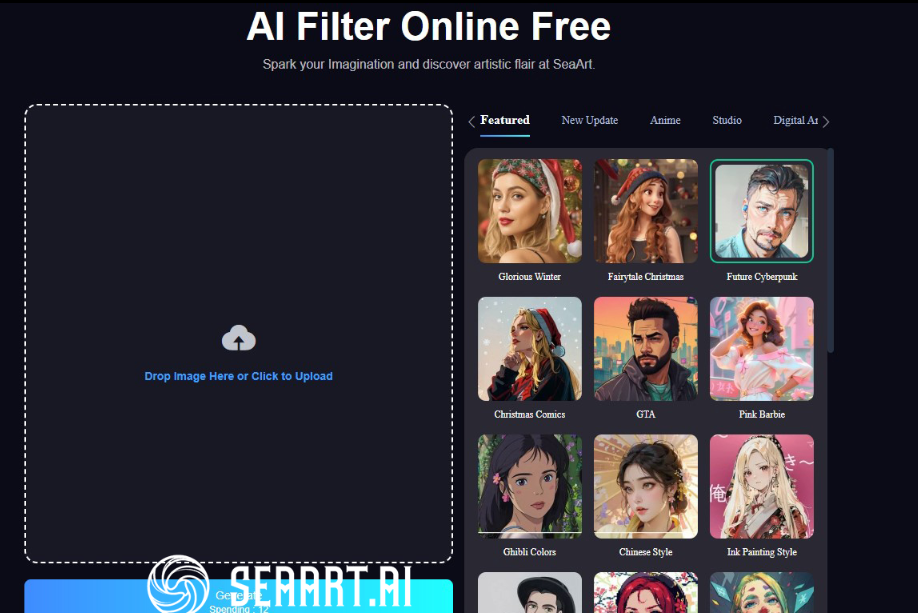Artificial Intelligence (AI) filters are transforming various aspects of digital life, from content moderation on social media platforms to enhancing photos and videos. These filters leverage advanced machine learning algorithms to analyse and process data, providing automated solutions that can significantly improve user experience, content quality, and even content creation through tools like free AI art generator.
The Role of AI Filters in Content Moderation
One of the primary applications of AI filters is in content moderation. Social media platforms, online forums, and other user-generated content sites face the enormous challenge of monitoring and regulating vast amounts of content. Traditional human moderation is time-consuming and often inefficient. AI filters, however, can automatically scan and evaluate text, images, and videos to identify and remove inappropriate content, such as hate speech, violence, and explicit material.
These filters are trained using large datasets that include examples of both acceptable and unacceptable content. Machine learning models, such as neural networks, learn to recognize patterns and characteristics associated with each category. Over time, AI filters become more accurate and efficient, reducing the burden on human moderators and ensuring a safer online environment.
Enhancing Visual and Audio Content
Beyond content moderation, AI filters are also used to enhance visual and audio content. In photography and videography, AI-powered filters can automatically adjust lighting, colour balance, and sharpness to improve the quality of images and videos. These filters can also apply artistic effects, transforming ordinary photos into works of art with styles inspired by famous painters or unique creative themes.
In audio processing, AI filters can remove background noise, enhance voice clarity, and even simulate different acoustic environments. This technology is particularly beneficial for podcasters, video creators, and anyone involved in audio production, providing high-quality sound without the need for extensive manual editing.
Free AI Art Generators and Content Creation
AI filters are not limited to moderation and enhancement; they also play a crucial role in content creation. Free AI art generators are a prime example of this application. These tools use AI algorithms to create art from scratch or transform existing images into new artistic styles. Users can generate unique pieces of art by simply inputting their preferences or providing a base image for the AI to work with.
Free AI art generators democratise art creation, allowing anyone, regardless of their artistic skill level, to produce visually stunning pieces. These tools are particularly popular among digital artists, marketers, and social media influencers who want to create eye-catching content quickly and easily.
Personalization and User Engagement
AI filters also enhance personalization and user engagement. Platforms like Instagram, Snapchat, and TikTok use AI to offer a variety of filters that users can apply to their photos and videos. These filters can range from simple colour adjustments to complex augmented reality (AR) effects that overlay digital elements onto real-world scenes.
By analysing user behaviour and preferences, AI can suggest filters that are more likely to resonate with individual users, increasing engagement and satisfaction. This personalised approach helps platforms retain users and encourages them to create and share more content.
Conclusion
AI filters are revolutionising how we interact with digital content. From enhancing photos and videos to moderating online discussions and enabling creative expression through free AI art generators, these advanced tools provide powerful solutions to complex challenges. As AI technology continues to evolve, we can expect even more innovative applications that will further enhance our digital experiences.
FAQs
- What are AI filters?
AI filters are tools that use artificial intelligence to analyse, process, and enhance digital content. They are commonly used in content moderation, visual and audio enhancement, and personalization.
- How do AI filters work in content moderation?
AI filters scan and evaluate content using machine learning models trained on large datasets. They identify and remove inappropriate content, such as hate speech, violence, and explicit material, improving the safety and quality of online environments.
- Can AI filters improve photo and video quality?
Yes, AI filters can automatically adjust lighting, colour balance, and sharpness in photos and videos. They can also apply artistic effects and enhance visual content quality.
- What role do AI filters play in audio processing?
AI filters can remove background noise, enhance voice clarity, and simulate different acoustic environments, making them useful for podcasters, video creators, and audio producers.
- How do AI filters enhance user engagement?
AI filters personalise user experiences by suggesting filters based on individual preferences and behaviour. This personalization increases user engagement and encourages content creation and sharing.








